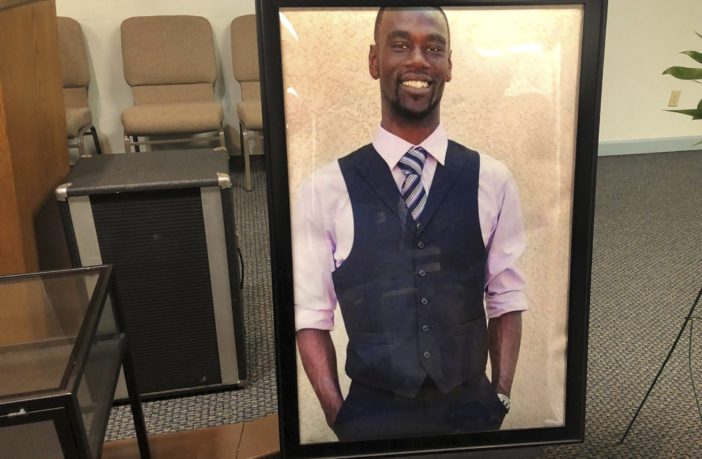The speed with which five Memphis police officers were fired following the traffic stop of a man who later died in a hospital is unusual but could become more common, according to those studying police and criminal justice issues.
The five Memphis Police Department officers were fired Friday, less than two weeks after the Jan. 7 arrest of Tyre Nichols, 29, Officials said the five were dismissed for excessive use of force, failure to intervene and failure to render aid.
It’s rare for a police department to act so quickly, said David Thomas, a professor of forensic studies at Florida Gulf Coast University. Investigations can sometimes go on for up to a year, he said.
“It never happens this quickly,” Thomas said.
All five officers — Tadarrius Bean, Demetrius Haley, Emmitt Martin III, Desmond Mills, Jr. and Justin Smith – are Black, as was Nichols. The decision to fire the officers followed a probe by the Memphis Police Department. Nichols died three days after the traffic stop.
The U.S. Justice Department has opened a civil rights investigation. The Tennessee Bureau of Investigation also is looking into the force used in the arrest.
One recent turning point has been the advent of police body cameras, which can be quickly reviewed, along with cellphone video taken by passersby, said Thomas, who served 20 years as a police officer in Michigan and Florida.
“In the old days, you’d have the officer’s word. If the victim was still alive, you’d have their testimony, If someone had died, you’d have the medical examiner’s report. All of that would play a role,” he said. “With body cameras, the evidence is right there.”
Nichols was arrested after officers stopped him for reckless driving, police said. There was a confrontation when officers approached Nichols, and he ran before he was confronted again and arrested, authorities said. He complained of shortness of breath and was hospitalized.
Relatives have accused police of beating Nichols and causing him to have a heart attack. Authorities said Nichols experienced a medical emergency. Relatives have pushed for the release of police body camera footage and called for officers to be charged.
Body cameras can only tell a full story if they are on and working throughout an entire incident, Thomas said. Some officers may forget to turn them on. Others may deliberately turn them off.
“Law enforcement can no longer act with impunity,” he said. “Absolutely, officers will be let go more quickly.”
Typically before a firing, officials will determine if an officer has violated a department’s general orders, which set out the procedures and regulations officers are meant to follow, said Patrick Oliver, director of the criminal justice program at Cedarville University in Ohio.
“The seriousness of the job action is based on the severity of the violation,” said Oliver, who spent 28 years in law enforcement, 16 of them as a police chief, including as chief of the Cleveland Police Department.
Firing an officer is the most severe job action, Oliver said, suggesting that department officials feel confident they can support the decision.
“There is far more scrutiny of police today,” he said. “When I was in policing there was less of a likelihood that something a police officer was doing would be caught on video.”
Oliver added that many times videos will confirm police acted properly. “I would say that’s the majority of times,” he said.
While unusual, it’s not unheard of for a city to fire an officer before criminal charges are filed, but that’s not necessarily the end of the story, said Stephen Rushin, a Loyola University Chicago law school professor who has studied police contracts.
Cities often give officers the ability to appeal disciplinary action, including termination of their employment, Rushin said.
“In many agencies, the initial decision to fire an officer begins a lengthy appellate process that can take months to complete,” he said. “At the end of this process, it is not uncommon for an officer to be rehired on appeal.”



